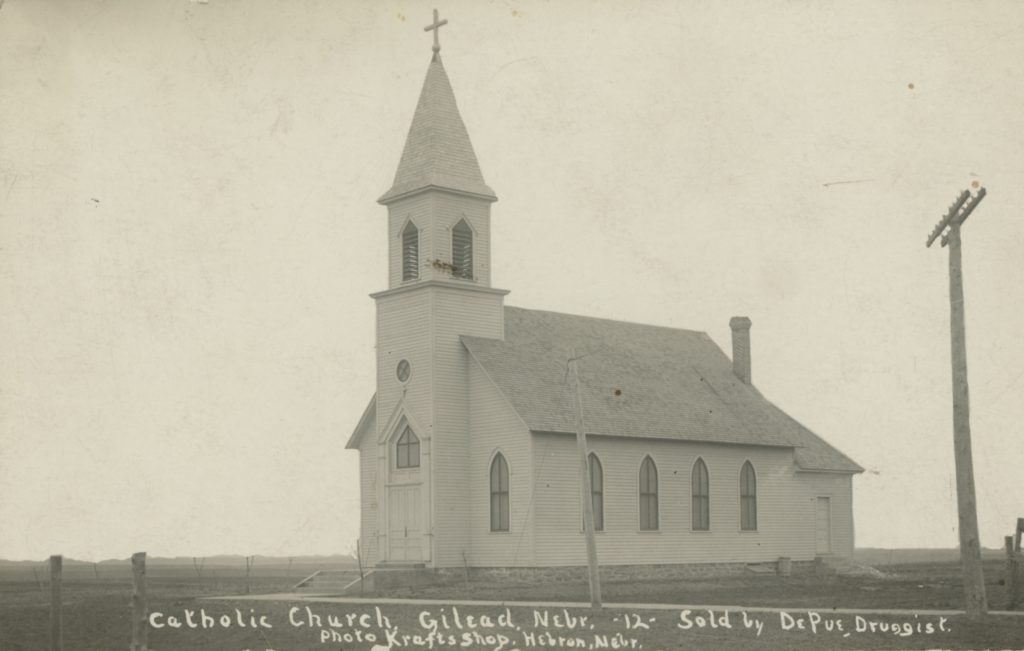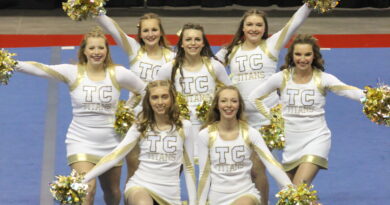Church guys to visit county

Written above the door leading into Ron Sack’s den is the quote, “When a person dies, a library is lost.”
He uses that quote as inspiration.
The quote is based on an old African proverb, but Sack heard it again while visiting with historian Alex Meyer of Snyder.
“It’s so true,” explained Sack. “My grandparents recorded as much history as they could over their lifetimes in order that it could be passed down for future generations.”
That type of vision is what is inspiring both Sack and Chase Becker of Omaha to tackle their most ambitious project to date — the history of the built environment of Catholic parishes in Nebraska.
Both Sack and Becker have strong ties to their respective hometown communities. Sack grew up in St. Paul and still considers Saints Peter and Paul his home parish.
Becker grew up in Exeter and calls St. Stephen Parish his home.
Since childhood, the two have collected photographs, artifacts, stories and records of Nebraska Catholic parishes, which also includes schools, convents, rectories, hospitals and cemeteries.
Their collections are long and extensive.
“As an example, both Ron and I have well over a thousand historic images in our photography libraries,” Becker stated. “Most are from the early 1900s.”
The two met at a postcard show in Omaha several years ago. Over a period of time, conversations started to include writing a book and telling the story of the Catholic parishes in Nebraska — both past and present.
“There has never been a comprehensive book documenting parishes in all three Nebraska dioceses,” Becker said. “We felt these stories and photographs need to be published in one book.”
When the two started to go on the road to research various parishes throughout the state, both thought they needed a good name to call themselves — thus, “The Nebraska Church Guys” was born.
“It had to be a name that was simple and memorable,” Sack noted.
Sack’s family traces their Nebraska roots to such Howard County Catholic parishes as St. Paul, St. Libory, Farwell, Warsaw and Paplin.
His professional background includes extensive advertising and design experience at agencies in both Lincoln and Omaha.
Sack considers the Nebraska Sesquicentennial logo for Nebraska’s 150th statehood anniversary as one of the favorites in his design career.
“It was an honor to work on something for 1.8 million Nebraskans,” he said.
Becker studied at St. Gregory the Great Seminary in Seward, Nebraska and later earned a degree from Saint John’s University in Collegeville, Minn. He is the liturgist at St. John’s Church on the Creighton University campus.
Both have dabbled with writing over the years. Sack, along with Marion Bahensky and the Howard County Historical Society in St. Paul, published the book “Entering Howard County.”
The book went on to win Best Non-Fiction Book at the Nebraska Book Awards, sponsored by the Nebraska Center for the Book.
It also won a merit award from the American Association For State and Local History which is headquartered in Nashville, Tenn.
Sack also self-published a book on Howard County architecture titled, “My Gift to Howard County.”
Becker self-published a book titled, “The Architecture & Art: Church of the Visitation of the Blessed Virgin Mary, O’Connor, Nebraska.”
The book also highlights the architecture of James Henry Craddock (1856-1932), a well-known Nebraska architect of Catholic churches.
One of the first tasks the duo tackled together was documenting every Catholic parish that ever existed in Nebraska.
From there, the two designed several maps that outlined all official Catholic parishes in the three Nebraska dioceses.
At last count, there were over 500 parishes that have been established at one time or another. They also created maps highlighting the locations of Catholic schools, colleges, hospitals, and other relevant data.
Over the years, the two have visited most of the Catholic sites throughout the state.
They plan to take another trip back to Thayer County and visit the churches of Sacred Heart in Hebron, St. Mary in Alexandria, and the former Catholic church in Gilead — now St. Paul Lutheran, July 2-3.
“These road trips are so valuable for the book,” Becker explained. “We not only get to meet the parishioners, but we also get to learn their stories and what makes their parish unique.”
Road trips will be part of their monthly routine for the next three years or so.
Besides maps, photographs, data and parish histories, some sections will highlight those areas of Catholic history that are unique to Nebraska.
“I’m a lover of architecture and design,” concluded Sack. “Gothic, Romanesque, Mid-Century and Contemporary architecture all add grace notes of beauty, variety and visual texture to our communities. All have stories to tell.”
Anyone with photographs and stories about these parishes may contact The Nebraska Church Guys at the following information below.
Ron Sack, stronn@gmail.com, 402-440-0823 and Chase Becker, chasembecker@gmail.com, 402-363-2982.



